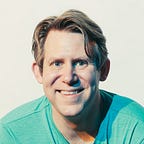Wales: UNA Exchange & Connecting Cultures
The UNA Exchange started as an international volunteering movement after the First World War. This transpired when the Swiss pacifist, Pierre Ceresole, sought to bring young people together from France and Germany to volunteer in the reconstruction efforts. In 1973, the organization headquartered in the Temple of Peace in Cardiff; and since then it has been the same institute that is known today as the UNA Exchange.
I spent a year studying abroad in Germany. And looking back, I can see how much this year influenced me. It lead me to challenge stereotypes, examine what I took for granted, and came to realize that people are not as different as you might think (beyond superficial cultural differences and language). Sure, the cultural stories we share are different, but the essence of how people live is very similar.
With much of the world conflict we see today — a lot of it comes from cultures creating stories about “the other” that drive people into tragic escalations of violence.
When you begin to bridge these cultural gaps, you start to see people around the world as your neighbors, as your family. The more bonds we develop across cultures, the more our stories change; and then more of our stories about “the other” become ones of friendship and kinship.
The founding members of UNA Exchange — Robert Davies and John Buford — shared these sentiments that connecting people from different cultures through common projects would break down barriers and allow people to understand and celebrate each other’s backgrounds. People volunteering together would naturally come to understand one another.
This takes a consistent effort though — it’s much easier to stoke the flames of xenophobia by sharing stories that blame other cultures and other people for your problems. It is easy to motivate people when they need to overcome an enemy or perceived threat — especially if you’re blaming problems on something other than yourself. You just need to find a target — and cultural, religious, ethical and national differences create very easy lines to segregate people. Just look at how much of our news today promotes these tensions.
It takes a lot of courage and wisdom to accept responsibility for your own situation, and consistent effort to build relationships across cultural boundaries. I know how easy it is to blame others for what’s going on in my life — and how seductive it is to think that fixing a problem outside of yourself will fix something internally. But true change comes from accepting responsibility for your situation and applying concentrated effort over time.
Originally published at Aurai Online.
